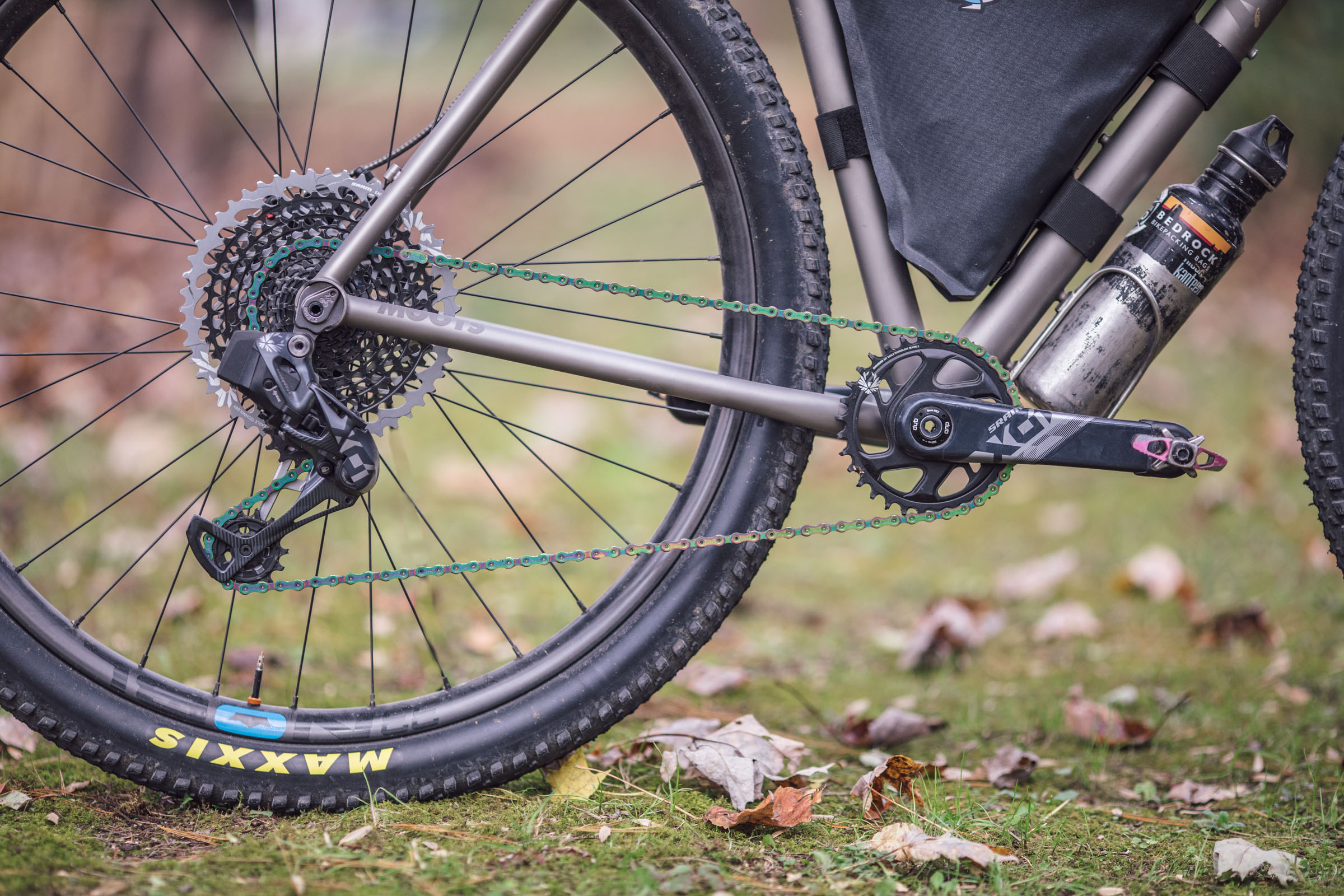Bike spoke replacement cost varies depending on the type of spoke and labor fees. On average, the cost ranges from $20 to $50, with additional labor fees of around $10 to $20 per wheel.
Spokes may need replacement due to wear and tear, impact damage or corrosion. It’s important to replace damaged spokes as soon as possible to prevent any further damage to the wheel or bike frame. A broken spoke can cause the wheel to buckle, making it impossible to ride the bike and requiring more extensive repairs.
Proper maintenance and regular inspection of spokes can prevent the need for replacements and lower the overall cost of maintenance. Bicycle repair shops and online retailers offer various types and sizes of spokes to suit different bike models and wheels.

Credit: bikepacking.com
The Importance Of Proper Bike Maintenance
Bike Spoke Replacement Cost: The Importance Of Proper Bike Maintenance
As a bike enthusiast, you know that proper bike maintenance is crucial, including the maintenance of your bike’s spokes. If you neglect your bike’s spokes, you may find yourself with costly repairs or even an accident. Here are the following things you should know about the importance of proper bike maintenance:
Worn Spokes: An Often-Overlooked Problem
Worn-out spokes are a common problem that often goes unnoticed. Here are the key points you should know:
- Spokes are an essential part of a bike wheel. They transfer the load from the hub to the rim, keeping the wheel strong and stable.
- As bike wheels roll over rough roads, spokes are subjected to tension, compression, and torsion. Over time, they can weaken, stretch, or break.
- A wheel with a worn-out spoke can become wobbly, unstable, or misaligned. It can also cause the brake pads to rub against the rim, wearing them out faster.
- To check the spokes, spin the wheel and look for any wobbling or rubbing against the brakes. Also, listen for any pinging or popping sounds that may indicate a weak spoke.
The Cost Of Neglecting Your Bike’S Spokes
Neglecting your bike’s spokes can result in costly expenses, including the need for spoke replacement. Here’s what you need to know:
- A broken spoke can cause an imbalance in the wheel, leading to an accident. It can also damage the rim, hub, or other parts of the bike.
- Replacing a few spokes can cost anywhere from $1 to $5 per spoke, depending on the quality and brand. If you need to replace multiple spokes, the cost can add up quickly.
- Ignoring worn-out spokes can lead to more severe problems, such as a broken wheel or frame, which may cost hundreds of dollars to repair.
Saving Money With Preventative Bike Maintenance
Taking care of your bike’s spokes can save you money in the long run. Here’s what you need to know:
- Regularly check, clean, and maintain your bike’s spokes to prevent wear and tear. Wipe the spokes with a damp cloth to remove dirt and grime, and apply lubricant to reduce friction and corrosion.
- Keep your bike’s wheel aligned and balanced to reduce stress on the spokes. Ensure the wheels are true by checking them with a spoke wrench or taking them to a bike shop for professional maintenance.
- Store your bike in a dry, cool, and preferably indoor location. Moisture and extreme temperatures can damage the spokes, causing them to weaken or corrode.
- Properly maintaining your bike’s spokes can save you money in the long run by avoiding costly repairs or replacement.
Proper bike maintenance is essential to keep your bike in good condition and prevent injuries. By regularly checking and maintaining your bike’s spokes, you can avoid costly expenses and enjoy a safe, smooth ride. Remember, prevention is key, and it pays off to invest time and effort in keeping your bike in top shape.
How To Identify Worn Spokes
Understanding Spoke Wear Patterns
Bike spokes are crucial components of a bicycle wheel, and they play a vital role in ensuring your safety and comfort when riding. However, with regular use, these spokes tend to wear and weaken, which could result in a broken spoke or even lead to accidents.
It’s essential to keep a keen eye on your spokes’ condition to identify any signs of wear and tear and replace them early to avoid further damage or mishaps.
Here are some of the most common spoke wear patterns to look out for:
- Straight pull spokes: These spokes are usually straight, with no bends near the hub or rim. They can weaken over time, leading to damage to the nipples or spoke holes and eventual failure.
- J-bend spokes: They have one bend between the hub and the rim. These types of spokes can develop cracks at the bend or near the head, particularly if they are poorly aligned or overtightened.
- Bladed spokes: These spokes have long, flat, and narrow profiles, and they’re quite popular in modern bicycles. They can develop cracks or break near the hub or the head over time.
- Corroded spokes: If your bike’s spokes have been exposed to moisture or harsh conditions, they may corrode over time. Corroded spokes can become weak and lead to failure.
Examining Your Wheels For Damage Or Loose Spokes
Before you start a bike ride, it’s advisable to check your wheels’ condition for any damage or loose spokes. It’s also a great idea to inspect your bike’s wheels at least once a month, especially if you ride regularly. Here are some things to look out for when examining your wheels:
- Check for any loose or broken spokes. Grab each spoke and give it a gentle tug to see if it feels loose. If any of the spokes are broken, you’ll need to replace them immediately.
- Check if the wheels are wobbling or out of true. With the bike upside down, spin the wheels and inspect them to see if they are wobbling or out of true. A wobbly wheel could indicate a bent or damaged rim, while an out of true wheel may mean that some spokes are tighter or looser than others.
- Inspect the rim for any cracks or damage. Look at the rim’s surface for any dents or cracks as this could indicate a weakened or damaged rim.
Measuring Spoke Tension With A Spoke Tension Meter
One of the most common ways of checking the spoke tension is by using a spoke tension meter. Accurately measuring spoke tension is essential to ensure that your wheel is properly tensioned and functional. Here are some of the steps to follow when using a spoke tension meter:
- Place the bike on a workstand and attach the spoke tension meter to a spoke mid-way between the hub and the rim.
- Read the tension levels from the spoke tension meter gauge and compare them to the tension levels recommended by the rim or the spoke manufacturer.
- Use a spoke wrench to adjust the spoke tension as needed. Turn the wrench clockwise to increase the tension and anti-clockwise to decrease the pressure.
Regular spoke maintenance is essential for the proper functioning of your bike. With a basic understanding of spoke wear patterns and routine inspection, you can identify any issues early and replace damaged spokes before they lead to unexpected accidents.
Frequently Asked Questions Of Bike Spoke Replacement Cost
What Is The Average Cost Of Bike Spoke Replacement?
The average cost of bike spoke replacement is around $1 to $2 per spoke.
Can I Replace A Broken Spoke Myself?
Yes, you can replace a broken spoke yourself with the right tools and skills.
Do Bike Shops Offer Spoke Replacement Services?
Yes, most bike shops offer spoke replacement services for a reasonable price.
What Happens If I Continue To Ride On A Broken Spoke?
Riding on a broken spoke can damage your wheel and compromise your safety while riding. It’s best to replace it as soon as possible.
Conclusion
Replacing bike spokes is a necessary part of regular bike maintenance and should be done whenever needed. After reading this article, you now have a general idea about what the bike spoke replacement cost entails, how to identify when your bike spokes need to be replaced, and learn about some simple steps for replacing them.
Although bike spoke replacement may seem daunting at first, with some basic tools and knowledge, you can easily perform the task and keep your bike in optimal condition. Remember to choose the right spokes for your bike’s wheels, and ensure that they are properly tightened and tensioned to prevent further damage to your wheels.
Finally, always prioritize your safety and consider seeking a professional mechanic’s help if needed.
